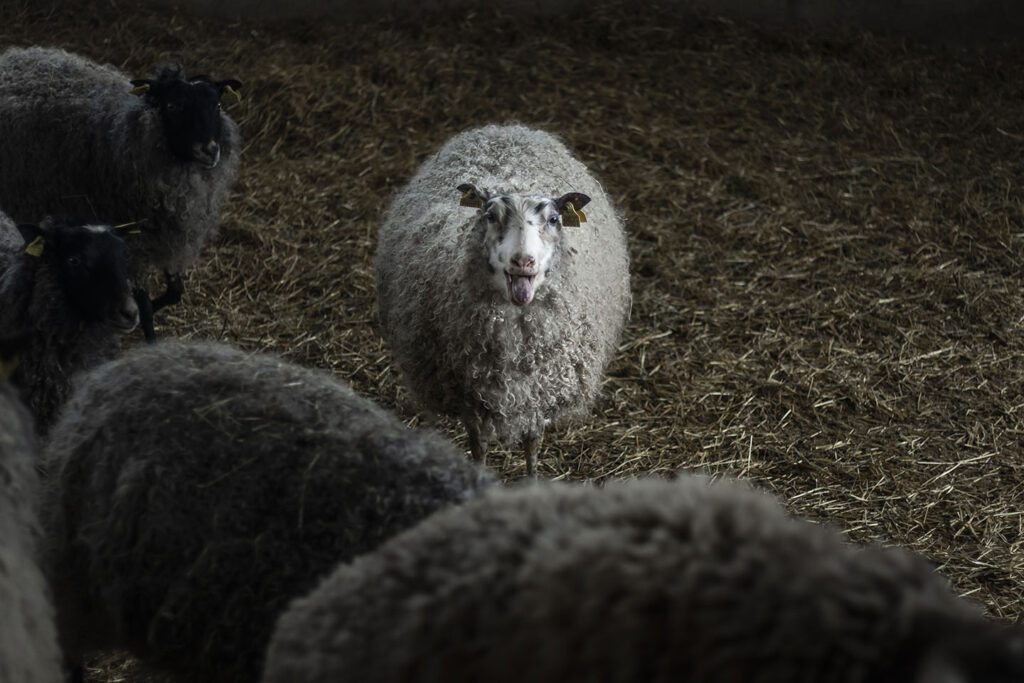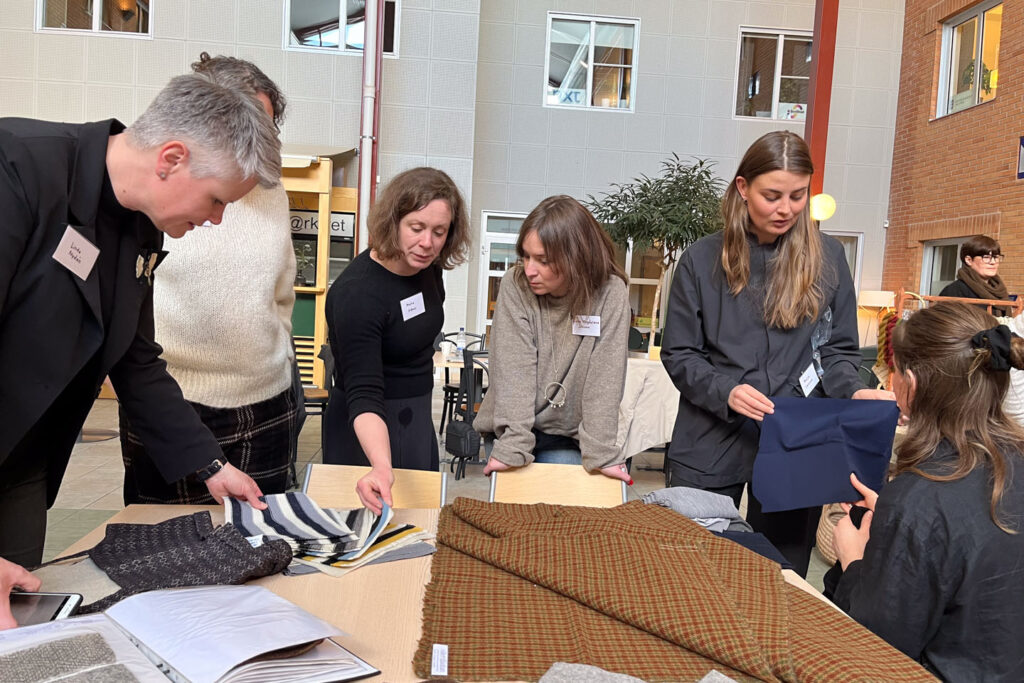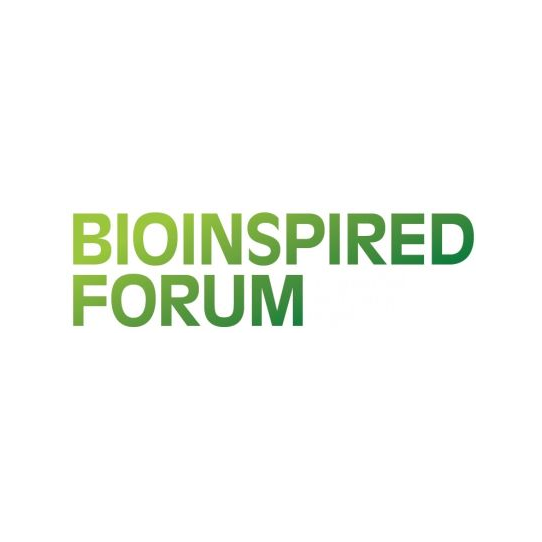The Swedish Wool Initiative – Industrial-Scale Utilization of Swedish Wool
Sweden imports over 1,700 tons of wool annually, while more than half of Swedish wool is discarded. A huge waste of resources that could supply Swedish industries with regionally sourced, biobased, and recyclable material. Since 2020, the Swedish Wool Initiative successfully created conditions for businesses to access competitive, high-quality Swedish wool. Scaling up in its second phase, the initiative aimed to increase resource efficiency in the Swedish wool value chain and enable the creation of circular products in sectors such as construction, furniture, fashion, outdoor, and home decor. Together, partners across the value chain contributed to the vision of zero waste of Swedish wool.
The Issue
Global textile demand is projected to increase by 150 percent by 2050. This trend is fueled by business models based on overproduction, overconsumption, and low production costs. Increased demand leads to significant environmental challenges as most textile fibers today consist of virgin, fossil-based synthetic fibers and conventionally grown cotton, which is often water-intensive and cultivated with large amounts of chemical inputs. Swedish brands are thus seeking regionally sourced, biobased, and recyclable materials with circular potential.
Swedish wool is one such promising material, yet the majority of wool from Swedish farms is currently discarded due to inadequate infrastructure for collection, lack of standardized quality assurance, and classification of wool. Consequently, Swedish brands import refined wool from various parts of the world, often with a higher environmental footprint and produced with lower animal welfare standards than Swedish wool.
With the right market conditions, efficient collection stations, and innovative circular product development, there was potential to harness residuals from sheep farmers, making wool a valuable resource across industries from fashion to furniture manufacturing.
– Johan Sidenmark, Project Manager Future Materials, Axfoundation

Swedish wool is locally produced, biobased, recyclable, and manufactured in a country with high animal welfare standards. Photo: Henrik Hansson
Our Solution
Scaling up the Swedish Wool Initiative built upon the lessons learned from its initial phase. The focus was on enabling Swedish industries and suppliers in construction, furniture, fashion, outdoor, and home decor to easily access quality and competitive Swedish wool raw materials. The initiative also aimed to create conditions for sheep farmers and shearers to receive a fair price for their Swedish wool, thereby stimulating wool collection.
Project Goals and Deliverables
The aim of scaling up the Swedish Wool Initiative was to increase resource efficiency in the Swedish wool value chain, ensuring all Swedish wool is utilized to its highest value.
In practice, the project focused on:
- The Swedish Wool Standard: Implementing new tools and processes in wool processing, including The Swedish Wool Standard with the new national classification system for Swedish wool.
- Collection Point: Developing infrastructure and logistics solutions for a regional collection point in the region of Dalarna that can serve as a model for other locations.
- Product Development: Developing innovative products based on circular design with Swedish wool as a raw material in the sectors of construction, furniture, fashion, outdoor, and home decor.
- Circular Business Models: Developing circular business models and a value chain for Swedish wool that creates value for all stakeholders.
- Sustainability Analysis: Conducting a sustainability analysis of Swedish wool based on data needed to create an environmental declaration for the product.

Stakeholders from across the value chain collaborated to elevate the Swedish wool industry to an industrial scale.
Our Work
The scaling up of the Swedish Wool Initiative was coordinated by Axfoundation in collaboration with Dalarna Science Park. It was a cross-sectoral partnership where stakeholders from across the value chain collaborated to scale up the use of Swedish wool and contribute to the transition to a sustainable and circular industry.
The initiative brought together companies that are typically competitors but were now working on a common sustainability challenge. Together with the project’s academic partners and expert group, solutions based on both research and practical experience from the Swedish Wool Initiative project were scaled up and disseminated in a real environment, both regionally in Dalarna and nationally in Sweden, together with Arena Svensk Ull.
Results
The first phase of the Swedish Wool Initiative (2020-2024) contributed to, among other things:
- A climate-neutral and circular industry for fashion, outdoor, and home decor through the development of circular products based on the residual flow of Swedish wool.
- A resource-efficient and resilient value chain for Swedish wool.
- Increased competitiveness for the raw material and products made of Swedish wool.
- A socially sustainable textile industry transitioning to a circular economy, through increased knowledge of circular design and product development.
Read more in the first project report →
The second phase of the Swedish Wool Initiative (2024–2025) contributed to, among other things:
- An established national infrastructure for collection and quality assurance.
- A significant increase in the use of Swedish wool across multiple industries, from fashion and outdoor to furniture, interiors, and construction.
- Strengthened competitiveness and transparency throughout the value chain, where collaboration between sheep farmers, processors, designers, and companies has created a more efficient and profitable wool market.
- Enhanced sustainability and knowledge development, with new insights into climate benefits, circular design, and resource-efficient production that are driving the transformation of the Swedish textile industry forward.
Some of the results along the way:
- Several innovative products have been developed based on circular design principles – ranging from knitted sweaters to woven wool suits, wool blankets, and backpacks stuffed with Swedish wool that was previously discarded. Additionally, a yarn has been developed based on Swedish wool that would not normally be accepted in the spinning process due to a high amount of organic material. During the project period, the project’s partners have increased their use of Swedish wool in production by over thirteen times, from 4.5 tons to over 60 tons (2019-2021).
- The role of wool brokers has been strengthened to enable centralized collection and quality assurance, and to bridge the gap between wool producers and the industry.
- The Swedish Wool Standard has been launched with the first national classification system for wool. It simplifies trading with high-quality Swedish wool raw materials, opening up entirely new market opportunities.
- A circular design guide for Swedish wool has been developed by Science Park Borås. It is a practical tool that helps companies use Swedish wool sustainably and circularly.
- A sustainability analysis of Swedish wool has been conducted by IVL Swedish Environmental Institiute to identify the benefits of the raw material and enhance its competitiveness. The results of the study indicates that Swedish wool production can have a lower climate impact and more positive effects compared to wool production in other countries.
- A life cycle assessment (LCA) of products made from Swedish wool—with a focus on evaluating their environmental and, in particular, climate impact—has been conducted by Miljögiraff.
Did you know…
- Approximately 1,000 tons of Swedish wool are produced annually, but more than half is burned or discarded as a byproduct of the sheep industry. Meanwhile, Sweden imported about 1,745 tons of processed wool in the form of raw wool, carded wool, and yarn (2020).
- In addition to being bio-based and recyclable, wool is also naturally antibacterial, dirt-repellent and flame-retardant. The unique composition of this raw material means there is no need to add chemicals such as PFAS or biocides to achieve these highly desirable features. This is an enabling factor for circular material flows.
Source: Swedish Sheep Breeding Association, Wargön Innovation
Partners
The Swedish Wool Initiative (2020-2023), led by Axfoundation, was a collaboration between around 20 organizations: Filippa K, Fjällräven, Tiger of Sweden, Klippan Yllefabrik, Smart Textiles/Science Park Borås, IVL Swedish Environmental Institute, Chalmers Industriteknik, Circularista, LE Ullkonsult, Norrby gård, Görvälnlammet, Västkustens Ullinsamling/CC Wool, Ullcentrum, Ullkontoret, Svenska Fårklipparförbundet, LRF, and TrusTrace. The project’s expert group included Animalia, Norilia, Hushållningssällskapet Halland, and Svenska Fåravelsförbundet. The project was carried out with support from Sweden’s innovation agency Vinnova’s program area Sustainable Industry.
The scaling up of the Swedish Wool Initiative (2024-2025) is led by Axfoundation and Dalarna Science Park along with partners across the value chain: Arena Svensk Ull, CTH Ericson of Sweden, Filippa K, Houdini Sportswear, Högskolan Dalarna, Dalarnas fåravelsförening, Insjöns väveri, Röyk, Science Park Borås, Sätergläntan, Tiger of Sweden, VERK, Väveriet i Bollnäs, Wool Rebel, Wålstedts ullspinneri, Ullkontoret, Swedish Textile Manufacturing, Åddebo Ull. Projektet finansieras delvis av Vinnova och Region Dalarna.








































